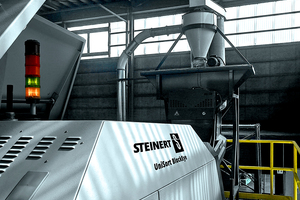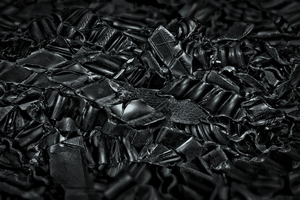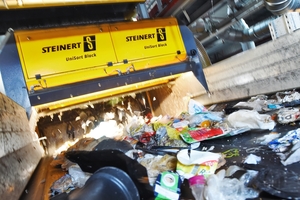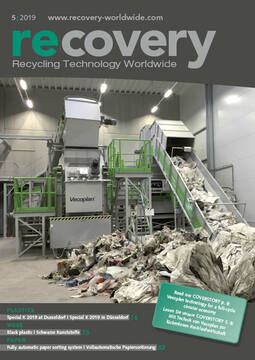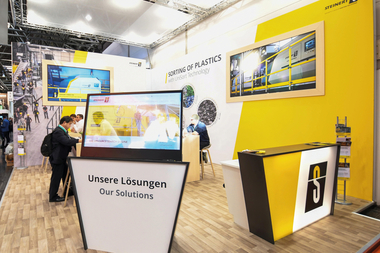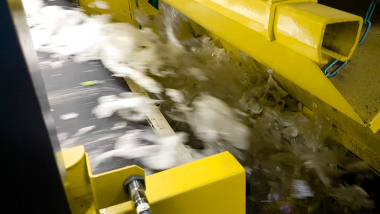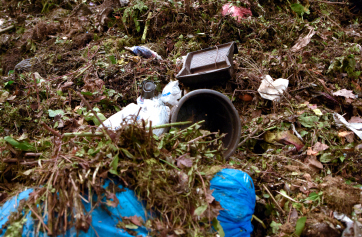Sorting black plastics into pure grades closes recycling loops
Since 2011, STEINERT has been developing detection technology for very challenging sorting applications and providing forward-looking reference projects, which document that plastics and the environment are compatible.
For example, STEINERT was one of the first companies to be able to detect black plastics and thereby positively separate them, allowing recycling rates to be increased. Sophisticated air flow technology also makes STEINERT the only company to be able to cost-effectively sort flat and lightweight black materials. What’s more, the pure-grade separation of black polyolefins (PO) into their constituent parts, such as polyethylene (PE) and polypropylene (PP), but also polystyrene (PS) and acrylonitrile butadiene styrene copolymers (ABS) allows polymer granulates to be replaced by mint-condition recyclates.
Turning plastic residues into new goods - thanks to pure-grade separation
Plastic-processing companies in particular can therefore benefit from STEINERT products and separate plastic residues containing a high proportion of black content at large-scale industry level and then upgrade them to a plastic granulate with properties similar to those of the primary raw material in order for it to be used to manufacture durable quality products. This procedure means that a significant percentage of new plastics can be replaced with recycled materials today, thereby saving hundreds of thousands of tons of CO2 every year.
State-of-the-art technologies coupled with 130 years of process know-how allow international customers to combine cost-effectiveness with sustainability to comply with stricter legislation and the sense of responsibility demanded by society and therefore take one step closer to a genuinely closed resource cycle and more environmentally-sound future.
⇥Stand: Halle 9 / B23

